ESIC Registration
ESIC Registration
- Drafting of ESI application
- Employer registration
- ESIC Employee Registration
- Documentation
- ESI Establishment registration certificate
- ESI consultation on phone
- Drafting of ESI application
- Employer registration
- ESIC Employee Registration
- Documentation
- ESI Establishment registration certificate
- ESI consultation on phone
ESIC Registration - An Overview
The Employee State Insurance (ESI) is a social security and self-financing scheme which benefits the employees by providing them with various health benefits. ESI Scheme gives benefits to both employees and their families. The benefits provided by the ESI scheme include sickness benefit, disablement benefits, medical benefit, reimbursement of the funeral expenses, and several other benefits. However, to benefit from the ESI scheme’s benefits, the employer who has the employees count of more than ten employees (in some states the prescribed limit is extended to twenty employees) who are earning a maximum salary of Rs 15,000 p.m., are required to obtain ESI Registration.
The Employee State Insurance (ESI) Act of 1948 works as the governing law for the ESI scheme. Hence, the ESI scheme is governed and regulated by the provisions of the ESIC Act, 1948.The Employee State Insurance Corporation or ESIC is an autonomous body formulated by the Ministry of Labour and Employment. In India, all the activities concerning to ESI scheme are regulated by this independent body.
What is an ESI Scheme?
The term ESI Scheme refers to a social security scheme designed to provide social protection to the employees working in the organized sector. Social protection refers to protection provided against the uncertain events of maternity, sickness, disablement, and death due to any injury caused in the course of employment. This scheme also focuses on providing medical care facilities to both insured employees and their family members (dependents).
What is ESI Registration?
ESI Registration is mandatory for those employers who are having employee strength of more than ten employees and are earning a maximum salary of Rs 15000 p.m. By obtaining ESI Registration, the workers or the employees working are provided with several monetary, medical, and other benefits by the employer.
After getting the establishment registered under the ESIC Act, the employer is now required to contribute an amount equivalent to 04 percent of the total monthly salary paid to the employee. In contrast, each concerned employee is required to contribute only 01 percent of each month’s salary. However, the employees who are earning less than Rs 100 per day are exempted from making a contribution.
What is the Monthly ESI Contribution?
With effect from 15.02.2020, the monthly ESI contribution is reduced. Earlier, the employer was supposed to contribute an amount equal to 4.75 percent of the employee’s salary. Whereas, the employee was required to contribute 1.75 percent of his salary.
However, the said limits are now reduced. The employee is now required to contribute 01 percent of the wages, rounded off to next higher rupee. In contrast, the employer is asked to contribute 04 percent of the wages payable to every employee, rounded off to next higher rupee.
What is an ESIC Code Number?
ESIC Code is a 17-digit unique identification number issued to every registered establishment. This code is generated either when the employer submits the required information on the ESIC Portal or on the receipt of a survey report from the Social Security Officer.
Documents Required
The documents needed for obtaining ESI Registration are as follows:
- Form 01: For Employer's Registration
- List of a minimum ten or twenty employees along with their date of joining and Salary Rate
- Memorandum of Association {MOA}
- Article of Association {AOA} together with the Certificate of Incorporation or the Partnership Deed as applicable.
- Copy of the PAN (Permanent Account Number) Card details of the business
- A copy of the Bank Statements of the concerned business
- GST (Goods and Service Tax) Registration
- Copy of the Factory or the Shop and Establishment Registration
- A copy of an LLP Agreement in the case of a Limited Liability Partnership
- Declaration Form from each employee together with their two passport-sized photographs
- PAN and Aadhar of employees
- Nominee details of the insured person
PROCESS
- Registration for ESIC
- Fill the Application form
- Payment of Fees
- Issuance of the ESIC Code Number
POST REGISTRATION
- Maintenance of an attendance register
- A complete register having the details of the wages paid to the workers
- Inspection book
- Monthly return and challan by the 15th of the following month
- Maintenance of a register having a record of the accidents took place on the premises
Benefits of ESIC Registration

- It provides comprehensive medical benefits
- It includes dependants
- ESI Registration can be used easily at different ESI hospitals and dispensaries.
- Any payments made will be compensated or reimbursed.
- It also takes into account the needs of the disabled.
- It provides easy access to the medical care in ESI Dispensaries or Hospitals.
- Sickness benefits are offered at the rate of 70 percent of the employee’s salary. The same is provided if the sickness continued for more than ninety-one days in a year.
- Maternity benefits are given in the form of paid leaves.
- Ninety percent of the total salary of the insured person is given to his dependents in case of his death during employment.
- Funeral expenses are provided to the deceased’s family.
- In the Permanent Disablement case, 90 percent of the insured’s monthly salary is offered as an insurance benefit.
Why BizOkay India?


Frequently Asked Questions
An applicant needs to provide a filled ESI form and photographs of his/her family member to the employer for obtaining ESI Registration. However, the employer must be registered under the ESIC (Employee State Insurance Corporation). Further, the employee will get an ESI Card after registration.
Any company that is employing more than 10 employees, who draw a maximum salary of Rs 15000, needs to obtain ESIC Registration. However, for some states, the employee strength is extended to 20.
Yes, ESI Registration is mandatory for every company that is employing more than 10 people.
The term “ESI Return” denotes a return filed by every employer who is registered under the ESIC (Employees’ State Insurance Corporation). Further, the employer needs to file this return twice a year.
ESIC is a type of medical insurance for the employees who are working below a certain income level. Further, ESI deduction acts as a premium. That means an employee can claim medical reimbursements in the form of cash or medical benefits in case of need. However, they are not qualified to withdraw money from there.
As per the ESI Act, an employee can claim Medical Benefits only from the ESIC Hospitals and Dispensaries. However, in case of emergency or the non-availability of the ESIC facility in a specific region, an employee can get his/her treatment done from the private hospital as well, but with prior approval from ESIC.
With effect from 01.01.2017, all the employees getting salary up to Rs 15000 per month are eligible to obtain ESI Registration.
The trainees are usually not paid a salary but are paid stipend. However, if a trainee satisfies the conditions provided under Section 2(9) of the ESIC Act, he/she will naturally be known as ‘Employee’ and will be covered under ESIC.
The ESI Scheme is administered and regulated by a corporate body known as the ESIC (Employees State Insurance Corporation). The members of this corporate body are Employees, Employers, the State Government, the Central Government, Experts from the Medical Profession, and the Parliament. Further, the Director-General of ESIC is the Chief Executive Officer (CEO) of the ESI Corporation and is also an Ex-officio member of the ESI Corporation.
The ESI scheme acts as a self-financing scheme. The funds are usually built out of the employers and employees contributions and are payable monthly at a fixed percentage of wages paid.
